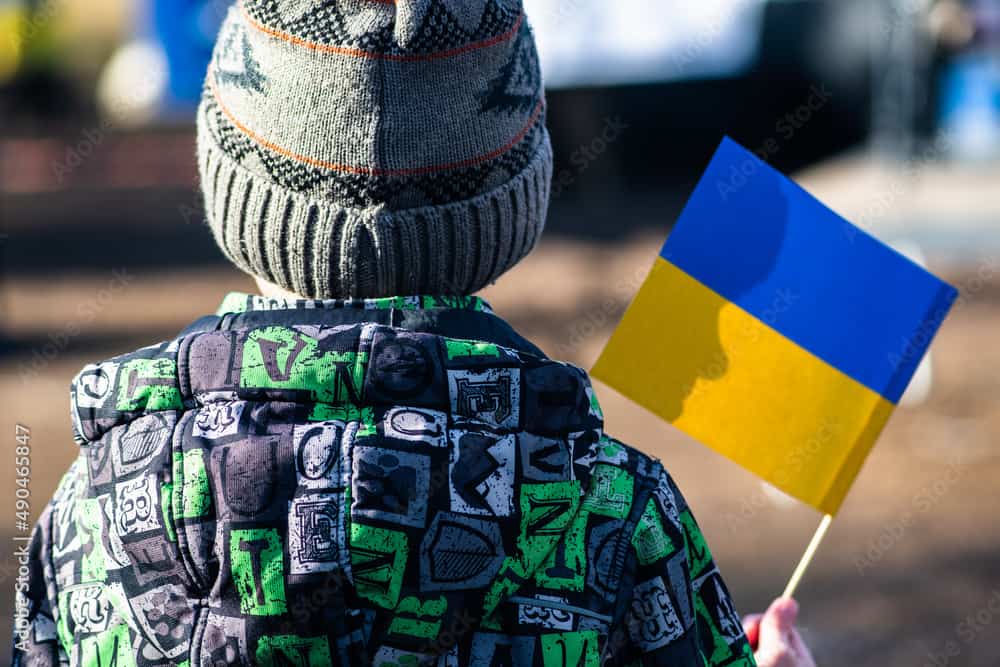Article, FEATURED STORIES, WORLD
In Prague, an Outpouring of Volunteers Rises to Help Those Affected By War

As the war continues in Ukraine, waves of refugees keep coming to nearby countries. In Prague, the first Ukrainian refugees began to arrive at the beginning of March, and people are scrambling to house, feed, and find jobs for the displaced people.
As the refugees pour in, the citizens of Prague are here to help.
We’ve interviewed Amanda Mataija, CEO and founder of Prague Integration, which helps people find mental health support.
War: A Mental Health Crisis
Amanda Mataija elaborates about Prague Integrations and their recently developed refugee outreach program. “We provide mental health help to expats in the Czech Republic. We also help locals, but the majority of our clients are expats. We host individual therapy sessions, group sessions, and various mental health-related programs and events. We also have a team of more than twenty counselors who speak twelve different languages.”
“What we are trying to do now is, first of all, keep sane. We are organizing our regular private sessions, and we are now mobilizing volunteers to do counseling that will be connected with the Prague City Expat Center. They will give us the space so that we can conduct free sessions there. Of course, for the refugees, we want to make services free. We also need to train volunteers who are psychologists, psychotherapists, and translators. One of the problems is language. We don’t have a lot of Ukrainian and Russian speaking counselors in my team, so I need to mobilize people to get support from those who speak the languages.”
Prague Integration is in a unique position to address the specific mental health needs of Ukrainian refugees. Because they mainly work with expats, they are able to help refugees with the typical struggles of immigration. “We have one-stop point for refugees to come and ask for support connected with their mental health. We are also trying to find information for accommodation, legal issues, access to the labor market, and so on. Also, some of the organizations are collecting food, clothes, especially stuff for women and children. This is how we are trying to help, but you see help here is very disorganized. Everyone wants to do something, and it’s very hard to follow up on who wants to do what… I strongly believe a centralized system could help them. Because if you don’t have housing and legal status, mental health help can’t work.”
Services For All Affected People
In addition to services offered specifically for Ukrainian refugees, Prague Integration is also increasing services for everyone. Mataija emphasizes the universal impact the war has. “I encourage people in Prague to reach out to us, even those not directly affected by the war. There are Russians and Ukrainians living in Prague… everyone is affected by this. People are scared and uncertain if this will come here. I would encourage everyone to reach out. We can provide group or individual sessions, I think the emphasis on mental health will grow and grow. If you don’t address [mental health], it can have disastrous consequences”
Mataija goes on to explain how even those with the capacity to volunteer should also be mindful of their own mental health. “. It’s all interconnected. I see a lot of people helping and volunteering. That’s amazing, but you also need to take care of yourself. People tend to burn out when they help beyond their capacity. For now, we have a lot of volunteers, what we really need is space to conduct activities. What we’re really needing is for admin stuff to be organized.”
“I also encourage people to donate and companies to reach out to us. A lot of people have Ukrainian and Russian employees. We can help with potentially problematic inter-office relationships on neutral territory. I would like to encourage people not to encourage hate… we have a lot of Russian people reaching out because they don’t feel good about the situation. I would again call for solidarity and understanding. We’re not here to hate. We’re to help and support everyone in need. Mental health help isn’t just for Ukrainians, we’re all affected by the war.”
Closing Statements
We asked Mataija for some final thoughts, so she told us what was the most impactful part of her job. “[When I see] people volunteering and offering help. Not just in Prague Integration, but in the Czech Republic. It’s just beautiful to see, so I’m really proud of that. I think when we… solidarity comes together, it can be a way to make capitalism less harmful.”
We’ve touched before on how community serves as a means to heal. As the war continues, so does the unending tide of people rising to help those in need.

